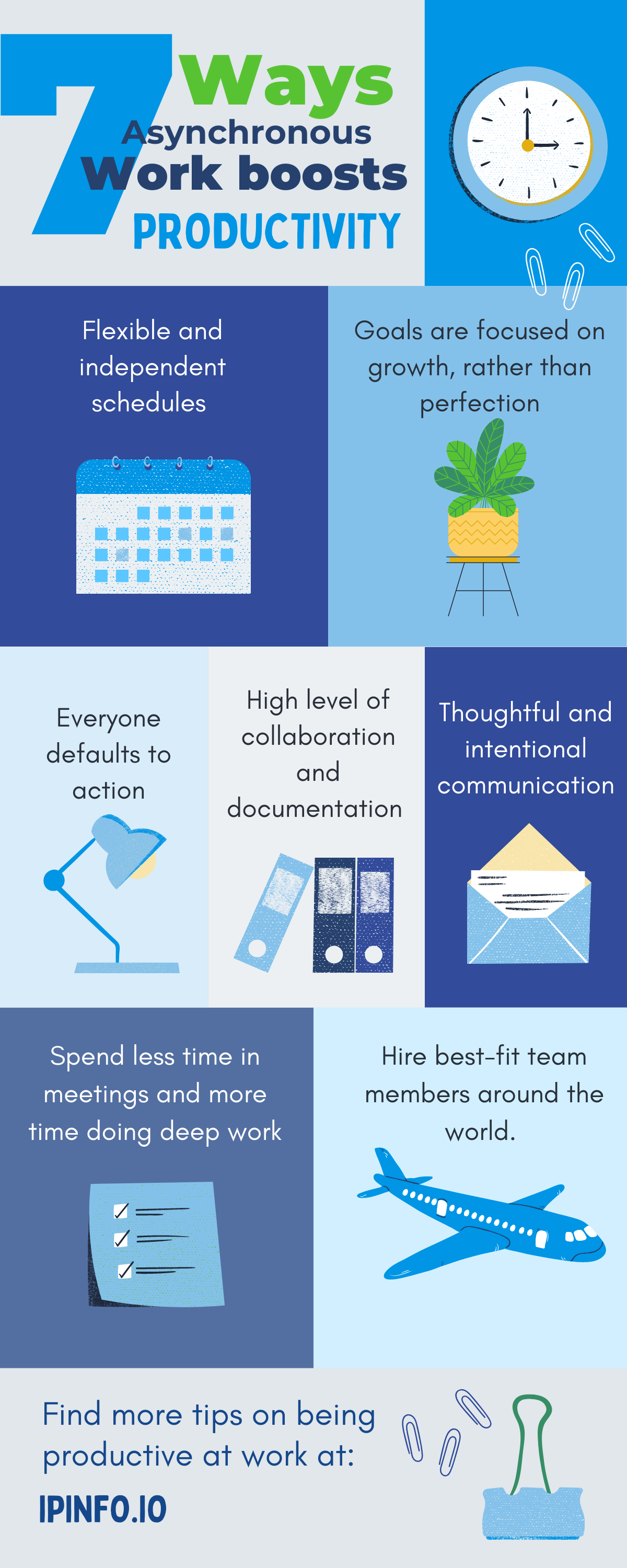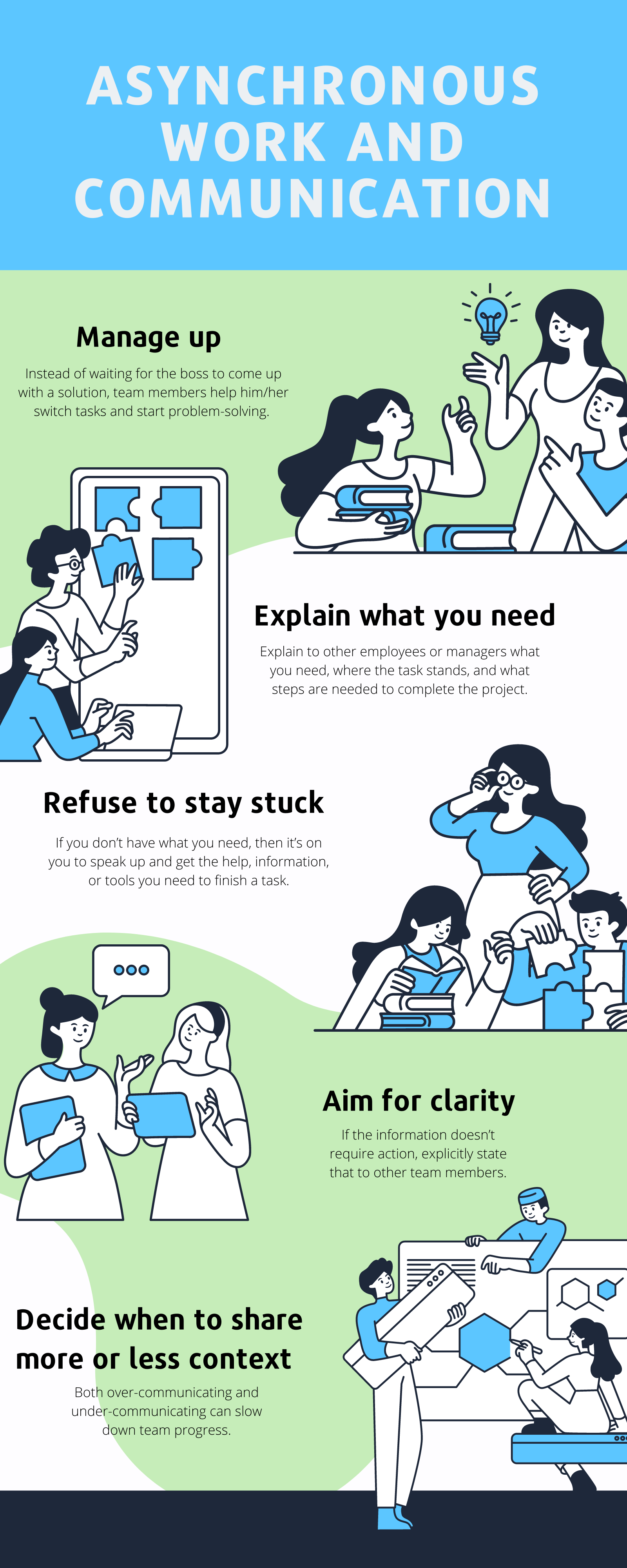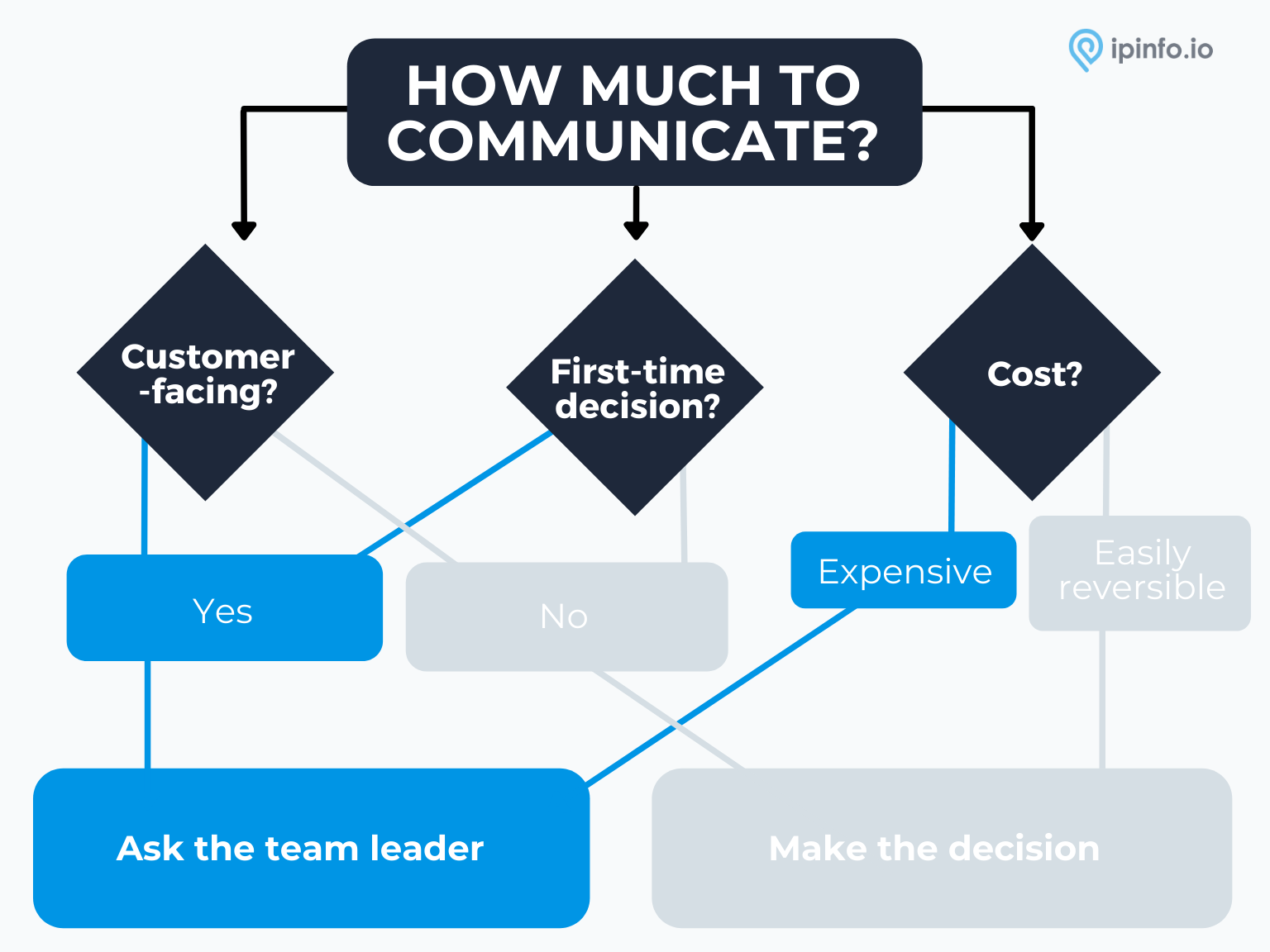 My IP ↗or
My IP ↗orIPinfo is a unique company, not just because of our quality data, but also because of how we work.
It’s no secret - our team works hard. And while we can’t say that everything is easy, we really enjoy what we do. We work well together, and it’s very rewarding.
Part of the secret to IPinfo’s success is tied to how we work. From the beginning, we’ve thrived with an asynchronous team model. While this work style may not benefit every company, it’s definitely allowed us to deliver the most accurate IP data on the market.
Take a look inside our team model to see what it’s like to work asynchronously.
What’s so great about asynchronous work?
Along the way, we’ve discovered several benefits that come along with asynchronous work

Team members enjoy the freedom to structure their tasks in a way that makes sense to them. For instance, at IPinfo, some team members prefer to work late in the evening. Others find it helpful to go to a coffee shop. And still, others travel the world while being very productive.
One benefit for IPinfo is that we have team members in almost every timezone around the world. As a result, we offer customer support 24/7 globally.
Communication can be challenging with async work. But on the upside, employees don’t always have to respond to every message immediately. We spend less time in meetings but have a lot of productive (and even fun) conversations over Slack and Zoom.
We can hire the best fit for every position, regardless of where they live in the world. Currently, we have employees located in Hungary, US, Ireland, Romania, Brazil, Jordan, Australia, and many other countries.
How we work at IPinfo
While asynchronous work does provide flexibility, that doesn’t mean we don’t assess our progress. There are a variety of tools and standards we use to make sure we stay on track with our goals.
How we do meetings
Because of how many timezones we operate in, we limit how many group meetings we have. Typically, each team has a meeting every two weeks. At the beginning of every month, we have a company-wide meeting.
Additionally, we also have a talk or presentation once a month such as the following:
- Team communication in remote work
- Product workshops
- Brainstorming sessions
- Overview of outbound strategies
How we do teamwork
We take a long-term approach to teamwork. If we want to build long-lasting and effective products, then we need to make teamwork both sustainable and enjoyable.
We care about results. That’s why we don’t encourage team members to be busy for the sake of being busy. If they don’t have the information or tools to operate efficiently, we want to know. On the flip side, though, it’s their responsibility to communicate that they need help.
This is sustainable teamwork.
How we do communication
There are downsides to being remote. With people living in all sorts of different timezones, scheduling calls with each other can be challenging, especially if the call needs multiple people from multiple timezones.

Back-and-forth discussions via email or Slack can take a really long time because the person you’re communicating with might be asleep when you send the update. Then you could be asleep when they reply.
Additionally, many ad-hoc conversations and discussions that happen in an in-person setting won’t ever happen spontaneously. As a result, at IPinfo we’re much more intentional and deliberate with our communication.
1. We “manage up”
For starters, individual team members remind their “boss” where they left the task in question. IPinfo’s support manager, for instance, keeps up with several other employees while also answering customer emails and updating FAQs.
When a team member brings a new question from an existing customer, they can speed up communication by providing context:
- What plan is this customer on?
- What are they using IPinfo’s data for?
Instead of waiting for the support manager to come up with a solution, they help him switch tasks and start thinking about possible answers for the customers’ problems by bringing workable solutions to the conversation.
2. We explain what we need
Assumptions can hinder good communication in every workflow. That’s why team members at IPinfo learn to explain to other employees or managers what they need, where the task stands, and what steps are needed to complete the project.
Without this explicit communication, tasks can stall for weeks on end.
For example, to create valuable content for our users, our marketing department often needs information from other departments. Sometimes this team needs to learn how our data cleaning processes work.
Other times they need to understand how customers are using IP data within various industries. This means our marketing team has to clearly explain what information we need from different departments in order to create useful content.
But regardless of the department, explicit communication is a must for async workflows.
3. We don’t make each other guess
Sometimes communication doesn’t require any action from the reader. They simply need to be informed. Our team makes sure to delineate when this is the case.
For instance, in our sales department, sometimes a team member simply needs to let the other members know that they’re running point with a sales inquiry. Here’s a great example of this exact scenario.

If we’re just passing along information that doesn’t require action, we explicitly state that to other team members.
4. We refuse to stay stuck
We don’t take a passive approach to tasks. If we don’t have what we need, then it’s on us to speak up and get the help, information, or tools we need to finish a task.
That includes Slack messages and tagging individuals with updates in Notion.
5. We determine when more or less context should be shared
Both over-communicating and under-communicating can slow down team progress. That being the case, here’s how we strike a healthy balance.

For instance, here’s a recent conversation on Slack.
One of our team members reminded our CEO of an earlier conversation while attaching the relevant file. Then she informed our Head of Customer Solutions that he didn’t need to take any action on this task but should be aware of the task.
How we get things done
We don’t operate “core hours” at IPinfo.
It’s true that some roles come with more constraints than others. For example:
- The support team needs to make sure the support queue is covered so customers can get a quick response
- The sales team needs to jump on calls with potential customers at a time that’s convenient for the customer
In general, though, each team member has the freedom to find what works best for them. To keep work from taking over their life, some team members find that scheduling a few days to work in the evening gives them the freedom to have a hard stop on other days.
Others need mental breaks throughout the day. So they schedule breaks throughout the day to go skiing, work out, take the dog for a walk, meet up with a friend, or get involved in their community. For instance, one of our team members used her work flexibility to help with the refugee crisis.
In other words, when we work, we work hard. But IPinfo empowers our team to have a life outside of work while still being productive.
Tools we use
Tools play an important role in remote work. Without the right tools, an asynchronous workflow could easily turn into a nightmare.
Slack
If you haven’t noticed yet, Slack is one of our primary communication tools. We have company-wide channels as well as team channels.
Each channel within Slack has a purpose. Team members are only on the channels that are relevant to the information they need. This is one way we keep from over-communicating.
Notion
Our main knowledge base is Notion. We use this platform to document our team processes, keep track of long-term initiatives, store notes, and visualize overviews of the products we’re building.
We also use Notion to keep track of important tools or processes that each team uses. For instance, the marketing team has its own set of folders that include categories such as these:

This is how we keep each team organized and heading toward the same goals.
Loom
We also use Loom as a communication platform. As an async communication platform, it helps us explain larger tasks without the need to call a team meeting. Each team member can then react or submit questions in the comments.
Recently, we used Loom to discuss website development. Both marketing and sales team members were able to share feedback with the designer after he explained the intention behind the design.
Linear
Linear is our project management platform.
There is (and must be!) regular cross-collaboration between teams via Linear, but there aren’t necessarily any generalized hard and fast rules that everyone must follow across teams. In other words, each team determines what workflow works best for their nature of work.
For instance, our marketing team often uses quarterly goals to allow enough flexibility to work on tasks that come up on a weekly basis. Other teams benefit most by using cycles or sprints that span a relatively short fixed amount of time.
Still, other teams may be highly project-driven and very focused on a fixed boundary of work. Take, for example, some of our newest tools. Many of the developers operated with project-driven tasks.
At other times, teams may do a mixture of all of these. Back to the marketing team, they also use sprints for tasks like email campaigns.
IPinfo produces quality IP data by hiring the best-fit people for each position. Our remote work environment means we can hire highly qualified individuals from all around the world. And with the highest caliber employees, we’re able to create an efficient, friendly, helpful, and optimistic workplace.
Want to learn more about working at IPinfo? Check out our recent job openings!
About the author

Internet Data Expert
